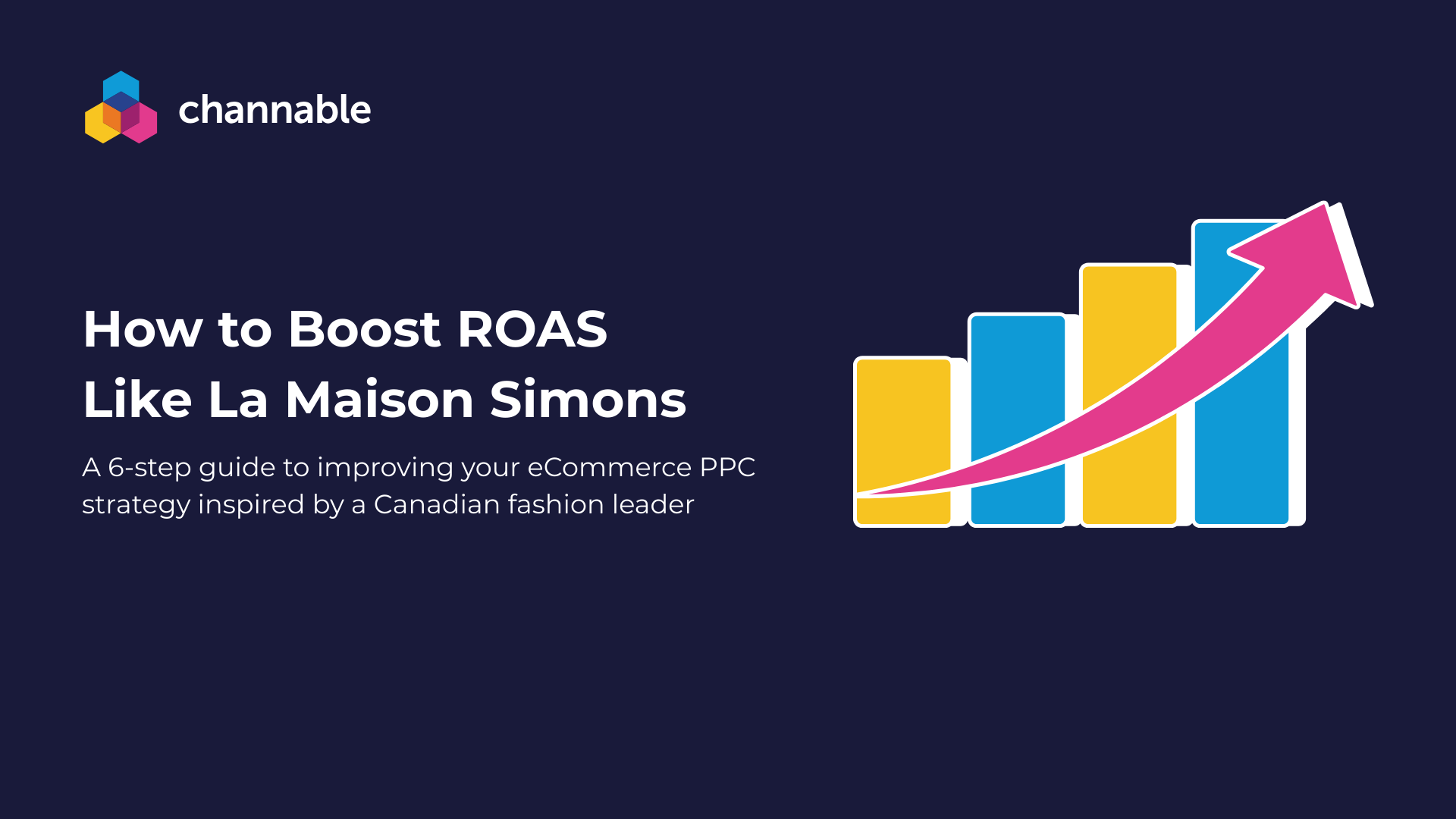Smart bidding updates in Google Ads
When the ad engines change how automation works, an effective toolset can help advertisers minimize the impact.
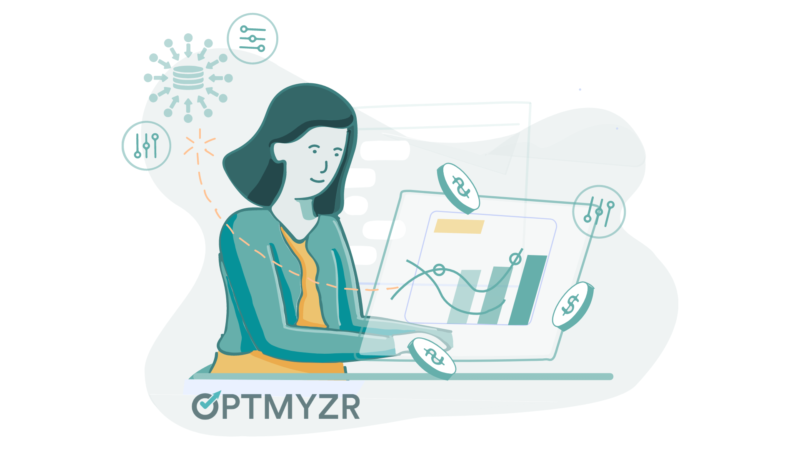
Google Ads plans to reorganize their Smart Bidding strategies and bundle the current Target CPA (tCPA) and Target ROAS (tROAS) strategies with Maximize conversions and Maximize conversion value, respectively. For most advertisers, the only change will be a switch to a different bidding strategy with little impact on performance.
However, with changes like this, it’s always a good idea to review that your account is well set up for a smooth transition and that you have the monitoring and alerting capabilities in place to find out quickly if any issues arise.
What is changing
Starting later in April 2021, some advertisers will no longer be able to create tROAS or tCPA bid strategies. Instead, they will see a new field to add a target CPA when using the ‘Maximize Conversions’ strategy and a new field for target ROAS when using the ‘Maximize Conversion Value’ strategy. If all goes well, this transition will ultimately lead to the tCPA and tROAS strategies becoming fully absorbed in their new counterparts.
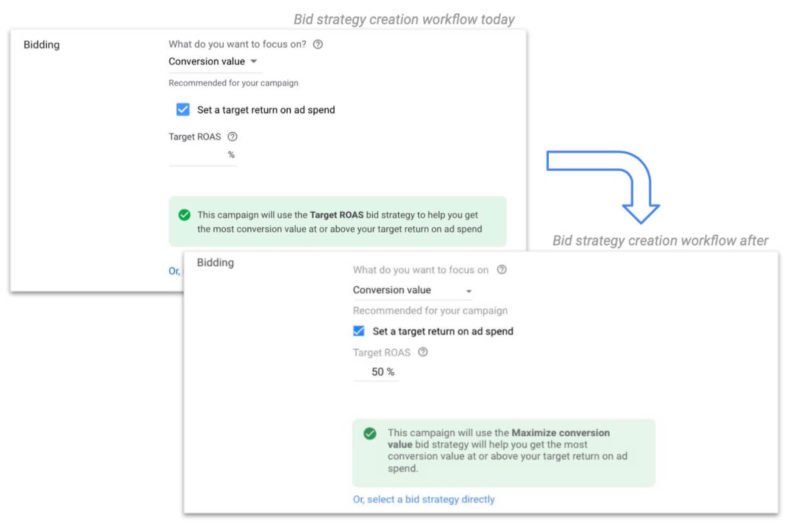
Image courtesy of Google.com
What this means for advertisers
Effectively, very little is changing in terms of how Google Ads bid management works behind the scenes. It’s just that you’ll have to use a different setting to achieve the same thing as before. In fact, smart bidding for search will simply start to resemble smart bidding for shopping a bit more because advertisers with smart shopping campaigns and a target ROAS are effectively already using a Maximize Conversion Value strategy with a tROAS.
This table shows the new settings (post-April 2021) that will be equivalent to the ones you may be using today (pre-April 2021):

Watch out for budget constraints
How bidding strategies work depends on their constraints. Some typical constraints you’ll encounter when working with automated bidding are the target (tCPA or tROAS) and the budget. But geotargets, keywords, and other targeting options also serve as constraints. Google’s recommendation is to remove as many constraints as possible and give the bid automation a single clear goal that is supported by unambiguous conversion data.
It’s important to remember you need targeting constraints as a way to ensure your ads are served to an audience you’ve already identified as higher value. Yet we’re still left to decide what to do about the target CPA or ROAS and the budget when they are both constraints.
In the past, Google recommended that advertisers with the old tCPA strategy and a constrained budget either remove the budget constraint (by increasing the budget) or switch to the old Maximize Conversions strategy. This obviously won’t work when tCPA and Maximize Conversions are merged and become the same.
After the change later this year, this means that advertisers using Maximize Conversions with a tCPA setting and who have a constrained budget should either raise the budget or remove the CPA setting.
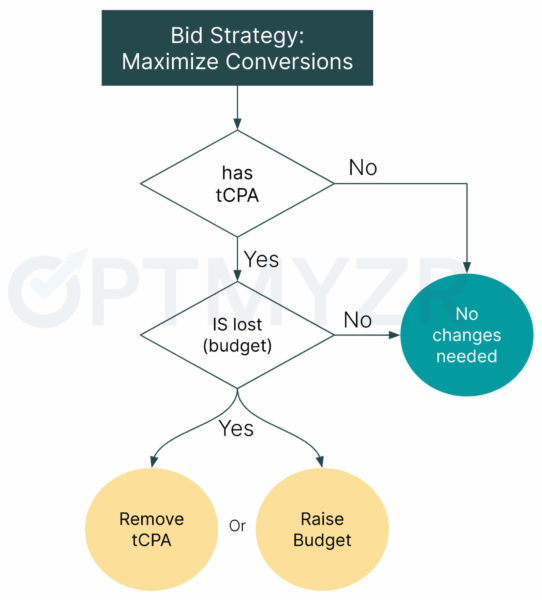
Why Maximize Conversions should not have both a target CPA and a limited budget
While not directly saying it, PPC influencer Martin Röttgerding alludes to what may happen behind the scenes if advertisers run their bid strategy with two constraints. They create conflicting goals.
A Maximize Conversions strategy is pretty clear in what the stated goal is: buy as many conversions as possible. If there is no budget constraint, then buy every single conversion (which is risky because you effectively have no guards against exceedingly high incremental costs per conversion).
If there is a limited budget for this strategy, then it will only keep buying the next cheapest conversion until the budget is spent. When you also introduce a target CPA constraint, you are setting conflicting goals because the system could either buy more conversions for lower prices or fewer conversions closer to your target CPA. So which is the advertiser’s real goal? The most conversions within a limited budget, or hitting the target with possibly fewer conversions?
When you introduce conflicting goals, you lose one of the few controls you have over automation. One day it may decide to prioritize one goal, and the next decide to prioritize the other goal. When results aren’t as expected, it’s hard to track down what happened because the system doesn’t tell you what it prioritized.

If you’re going to use Maximize Conversions with tCPA setting for a budget-constrained campaign, at the very least you need to monitor the quality of conversions after the switch.
Review your conversions as part of this change
Remember cheap conversions may not be good conversions. Targeting lower-cost conversions can be risky because there is no such thing as a free lunch. When a conversion is cheap, there is an economic reason for that. Typically, not as many advertisers value that conversion highly so there’s not as much competition for it. And remember Google Ads is the world’s biggest auction so when a conversion doesn’t attract a lot of bidders because they believe it to be a less valuable conversion, then that conversion will be available to buy at a lower price.
So remember when you use Maximize Conversions with no tCPA setting, you may be buying some of the conversions that are of the less-good kind.
One way to ensure you’re buying conversions that you want is to help Google understand what you truly value in a conversion. Too many advertisers don’t tell Google anything more than they got a conversion, like a lead who submitted a form on their site. But they never update Google about what happened with that lead once the sales team contacted them. By using offline conversion import (OCI), advertisers can tell Google which conversions were more or less valuable and that will help their machine learning systems target more of the good kind of conversions. Check out our recent PPC Town Hall about Smart Bidding where we discussed this topic.
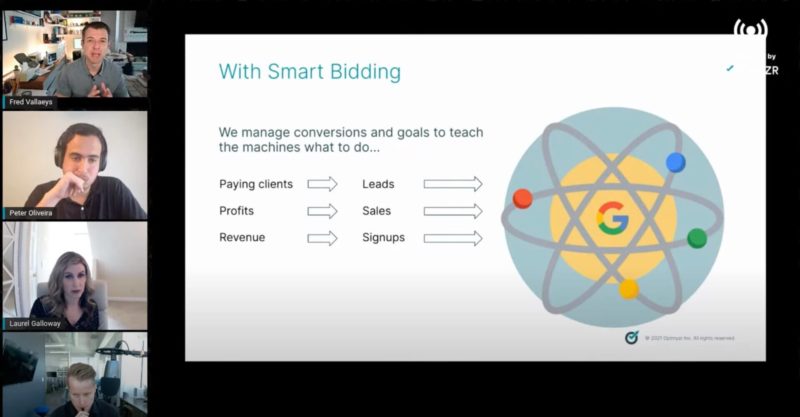
Even with tCPA or tROAS, Google Ads still charges advertisers a CPC
Technical detail: Remember that even with tCPA or tROAS, the ads auction uses cost per click (CPC) pricing. So advertisers are always being sold clicks by Google. Google’s automated bidding helps advertisers buy more of the clicks that have a predicted conversion rate or conversion value that when combined with the CPC will help them meet their targets for CPA or ROAS.
Conclusion
For most advertisers, not much will change in terms of how their bids are managed, even after Google combines their tCPA and tROAS strategies into their updated Maximize Conversions and Maximize Conversion Value strategies. Advertisers will still be able to use Optmyzr to optimize manual or smart bids as they did before and use sophisticated tools like Rule Engine and Account Blueprints, to quickly implement new strategies in response to this or any other change from the ad engines.
Opinions expressed in this article are those of the sponsor. Search Engine Land neither confirms nor disputes any of the conclusions presented above.


